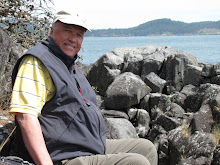I have returned to my blog after much difficulty in getting access to publishing blogs. I think I have it figured out now.
I am 5 years and 8 months out from diagnosis and in very good health. I have still had no conventional treatment but follow a rigorous regimen of diet, exercise, supplements, and meditation as outlined in this blog below.
I continue to be monitored every 6 months with DRE and PSA test.

